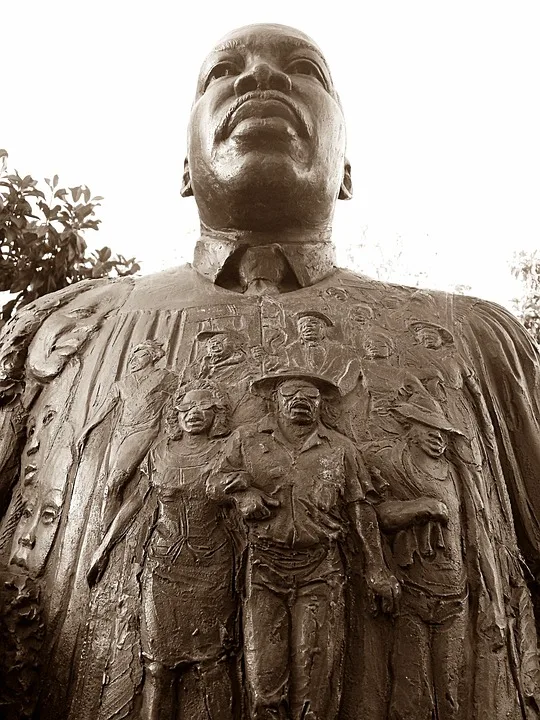
Canada’s Doctor Shortage: Foreign Nationals Fill Residency Positions While Canadian Doctors Are Turned Away
Canada is currently facing a severe shortage of doctors, and the problem is expected to worsen as the population continues to grow at a rapid rate. Despite this dire situation, approximately 1,000 Canadian doctors who were educated abroad are being denied residency spots in Canada, according to a review of medical school data conducted by CBC News. Residency positions are necessary for physicians to become licensed to practice medicine.
Canadian doctors who wish to return home and work are often told that it’s not possible due to limited resources and the limited number of available residency positions. However, it is perplexing that medical schools that offer residency programs still manage to find room for foreign nationals from countries like Oman, Kuwait, and Saudi Arabia. These individuals often have no intention of staying in Canada to work in the long term.
What is even more concerning is that the federal government has given its approval for this practice. Medical schools have been exempted from immigration laws that prioritize job opportunities for Canadians. Critics argue that if the government were to dismantle the foreign “visa trainee” program, which reserves several hundred residency spots for non-Canadians, it would open up more positions for Canadian doctors and help alleviate the physician deficit.
Data from the Canadian Resident Matching Service (CaRMS) reveals that in the current academic year, 1,810 Canadian international medical graduates (IMGs) applied for a residency. However, due to the preference given to Canadian graduates and the strict quota on IMGs, only 370 of them were actually placed into residency positions.
As a result, many qualified Canadian physicians are forced to seek opportunities in the United States, where there is a greater availability of residency positions. This brain drain is a significant loss for Canada’s healthcare system.
One such physician who experienced the challenges of getting a residency in Canada is Dr. Joshua Ramjist, who originally hails from Pickering, Ontario. He attended medical school in Grenada and faced uncertainty and sleepless nights when attempting to return to Canada to practice medicine. Dr. Ramjist emphasizes the presence of a talented and dedicated pool of international medical graduates who want to serve their fellow Canadians.
Experts estimate that by 2028, Canada will face a shortage of approximately 44,000 doctors, including over 30,000 family doctors and general practitioners. While native-born and naturalized Canadian doctors who attended medical school overseas are being turned away, foreign trainees are still being admitted to residency programs in Canada, despite the apparent scarcity of resources. Saudi Arabians constitute the largest group among foreign residents.
Moreover, the number of foreign trainees is increasing. In 2019, 87 foreign trainees began their first year of a residency position in Canada. By 2022, this number had risen to 148, representing a 70% increase in just three years. In contrast, the number of Canadian doctors trained abroad admitted to residencies in Canada remained largely static during the same period.
Foreign trainees are typically required to return home once their residencies are completed. This means that valuable Canadian residency spots are wasted. Critics argue that these foreign residents should be deployed in physician-starved rural and remote areas or encouraged to set up practices in provinces with a high demand for family doctors, such as Nova Scotia, where 142,000 people, roughly 14% of the population, are on a waiting list for a family doctor.
Comparison between foreign trainees and Canadian international medical graduates (IMGs) reveals that IMGs are Canadian citizens or permanent residents who have a desire to live and work in their home country. The Society for Canadians Studying Medicine Abroad (SOCASMA), an advocacy group for IMGs, is calling for the dismantling of the current residency system, which prioritizes foreign nationals who do not intend to practice medicine in Canada in the long term.
Bulletin 230, a policy implemented by Immigration, Refugees, and Citizenship Canada (IRCC) in 2010, exempts Canadian medical schools from conducting labor market impact assessments (LMIA). LMIA is required to prove that no Canadians are available to fill job positions before hiring foreign nationals. By exempting medical schools from this process, the government has allowed medical schools to admit foreign trainees despite the exclusion of over 1,000 Canadian doctors from the residency system each year.
This practice continues because foreign trainees are a lucrative source of revenue for medical schools, with their benefactors paying higher sums for their residencies compared to what provincial governments offer Canadian residents. Additionally, foreign trainees may cover the salaries of teaching staff.
Ivy Lynn Bourgeault, an expert on health care human resources and a professor at the University of Ottawa, argues that the system should prioritize the health needs of Canadian citizens. While cautioning against abrupt changes to avoid further instability, she suggests that a systemic review of the residency system is necessary.
In response, the Canadian government stated that foreign medical residents contribute their time and expertise to Canada’s healthcare systems and the treatment of Canadians. However, critics argue that this response is misleading and that the limited residency positions should be filled by Canadian doctors first in order to address the urgent healthcare needs of Canadians.
The current system that prioritizes foreign nationals over Canadian doctors is exacerbating Canada’s doctor shortage and leading to unnecessary delays in healthcare access. Advocacy groups are urging the government to revoke Bulletin 230 and give preference to Canadian doctors and permanent residents in residency admissions. Until then, the lives of thousands of Canadians are at risk due to a lack of timely access to healthcare.
HTML Tags:
– Headline: Canada’s Doctor Shortage: Foreign Nationals Fill Residency Positions While Canadian Doctors Are Turned Away
– Bold: Canada’s Doctor Shortage, Foreign Nationals, Residency Positions, Canadian Doctors Turned Away, Residency Spots, Medical Schools, Immigration Laws, Visa Trainee Program, Canadian International Medical Graduates, Physician Deficit, Brain Drain, Systemic Review, Healthcare Access, Bulletin 230.